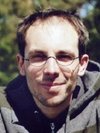IMPRO - Identification and analysis of process limitations in hydrological model structures
In hydrological models, the complexity of hydrological systems is represented by simplified model structures. The differences between model structures, e.g. in the type and accuracy of process representation, lead to differences in model performance and could be explained by deficits in the representation of hydrological processes. In order to investigate the variability in the process representation and to identify the resulting limitations, it is necessary to compare different model structures in different catchments.
This topic is the focus of the DFG-funded scientific network IMPRO (Identification and Analysis of Process Limitations in Hydrological Model Structures). This involves 15 predominantly young scientists* from 12 institutions. These are: Björn Guse (PI), Doris Düthmann, Uwe Ehret, Tobias Houska, Jens Kiesel, Ralf Loritz, Lieke Melsen, Tobias Pilz, Sandra Pool, Diana Spieler, Maria Staudinger, Michael Stölzle, Larisa Tarasova, Stephan Thober and Paul Wagner.
Within the network, a consistent protocol for a comparison of model structures and an identification of limitations in the process representation will be developed based on the discussions during the workshops. In addition to the discussions, model simulations with three frequently used models will be carried out in ten test catchments in Germany.
Based on the discussions in the scientific network, hypotheses will be derived how to achieve that limiting processes are better represented in models in the future. It is planned to present these findings in a joint paper.
Semi-annual workshops are planned in 2021-2024 with the following topics:
Topic A: Model comparison protocol
- How should a model comparison protocol look like that is focused on identifying structural model deficiencies and process limitations?
Topic B: Process- and parameter variability
- Which conclusion can be drawn from spatiotemporal variability in processes and parameter sensitivities among different models and catchments with respect to better process representation?
Topic C: Modell performance of discharge and single processes
- How does model performance vary over time and between different models and catchments and what can this tell us about the performance of the representation of individual processes in models?
Topic D: Limitations in process representation
- How can limitations in models be detected and related to individual hydrologic processes?
Topic E: Hypotheses to improve process representation
- Which hypotheses for better process representation can be derived from model limitations and which data sets should be used to validate the process representation at the catchment scale?
Topic F: Summary and project proposal
The following international well-known scientists will be invited to the workshops: (A) Serena Ceola, (B) Thorsten Wagener, (C) Jan Seibert, Frederik Kratzert, (D) Markus Hrachowitz, (E) Dörthe Tetzlaff and (F) Nicola Fohrer.
We hope that the collaborations and discussions in the scientific network will lead to significant progress in process representation in hydrologic models. As a result, it is expected to obtain more clarity how to improve process representation and which methods and data would be helpful. In this way, the scientific network is expected to make an important contribution to national and international hydrologic modeling and the hydrologic community.


